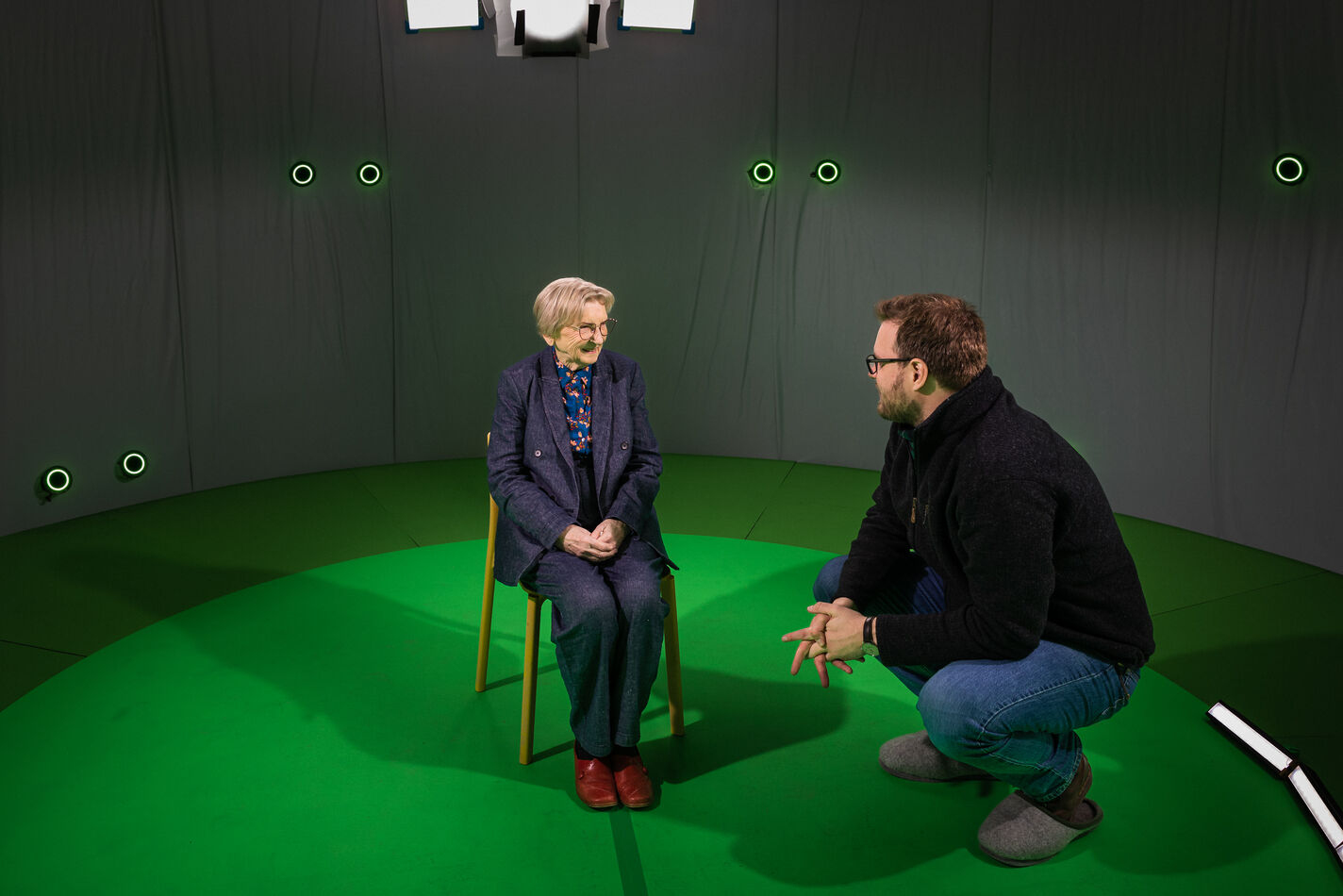The project "In Echt? - Virtuelle Begegnung mit NS-Zeitzeug*innen" was conceived and carried out with the Brandenburg Society for Culture and History gGmbH (BKG), and uses interactive and immersive technologies to encourage examination of German history across a broad range of society. The presumption is that a deeper, intellectual and emotional understanding of historical conditions and related processes raises awareness of the conditions under which they arose and thus impacts the present.
In the course of the project, sequences will be selected from volumetrically recorded interviews with contemporary witnesses of Nazi actions, sourced from the project Volumetric Contemporary Testimony of Holocaust Survivors in the archive of the Film University Babelsberg KONRAD WOLF. From this material, a virtual reality application for a mobile exhibition will be developed. This exhibition will be presented on various occasions, in different contexts and at a wide range of locations in Brandenburg, enabling a heterogeneous group of visitors to have virtual encounters with Nazi witnesses. Target focus is young people, who are to be specifically addressed by the digital format and by a supplementary educational programme.
The project’s primary goal is to question, within the framework of a broad critical discourse, in what form the memories and experiences of the victims of National Socialism can be made accessible so that they remain a permanent part of collective historical consciousness.
Further information on the project can be found on the project website of cooperation partner BKG. The project is funded by the Bildungsagenda NS-Unrecht von der Stiftung Erinnerung, Verantwortung und Zukunft (EVZ) and the Bundesministerium der Finanzen (BMF).



